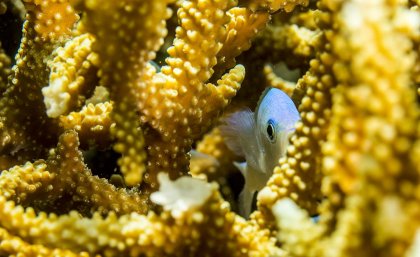
The degradation of coral reefs might have short-term benefits for some fish groups, but would be bad for fisheries long term, according to a University of Queensland-led study.
The research, which focused on fisheries’ productivity under progressive coral reef degradation, also found that the industry may be fairly robust up until the early reef degradation stages.
However, UQ School of Biological Sciences researcher Dr Alice Rogers said authorities need to change management practices to take advantage of the benefits.
“The loss of living corals alters the flora and fauna found in the sea which means less refuges and places to hide for reef fish, and more algae and invertebrates that many reef fish eat,” Dr Rogers said.
The study modelled how these changes affect coral reef communities, food webs and the potential productivity of coral reef fisheries.
“We found that initial losses of living coral, but not erosion of their structure, increased fisheries productivity in the short-term, but productivity increases were from herbivorous fish and smaller fish which may not be the most highly valued targets," Dr Rogers said.
“However, when the structure of the reef eroded following coral death, all benefits to the industry were lost.
“Coral reef health around the world is deteriorating, and that could affect the lives of tens of millions of people.”
The study, in collaboration with UQ’s Professor Peter Mumby of the ARC Centre of Excellence in Coral Reef Studies and Dr Julia Blanchard of the University of Tasmania, is published in the Journal of Applied Ecology (doi: 10.1111/1365-2664.13051)
Media: Dr Alice Rogers, a.rogers2@uq.edu.au, +64 22 417 7949; Professor Peter Mumby, p.j.mumby@uq.edu.au, +61 449 811 589.









